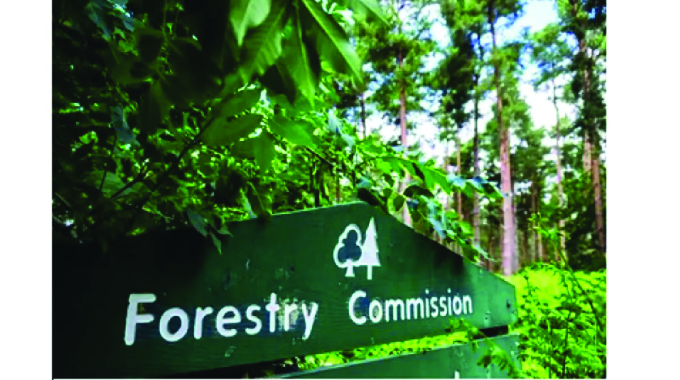Let’s co-exist with nature for survival

Stephen Mpofu, Perspective
“Peace be still.”
Let the three-word exhortation above become a portion for all those Zimbabweans trepidated by beautiful scenes vanishing from cinema and television screens to be replaced by ugly scenes of desolation that are bound to qualify many parts of Zimbabwe as virtual deserts where no potential investor, foreign or local, will be willing to sink their hard-earned cash for any desired prosperity.

Prosperity (Photo credit: dreamstime)
This discourse is about wanton deforestation going on and leaving many parts of our motherland naked, like stripped human beings that no one wants to set eyes on and yet those same areas under siege are sources of food for the survival of many including the guilty among our citizens so that the message of economic development for a brave new future that our Government preaches on a daily basis is made by the destructive forces to become a virtual paradox in a country in which the revolutionary spirit of freedom, Independence and self-determination engineered the demise of white racists colonial rule.
But the truth of the matter here is that those responsible for woodlands vanishing into thin air act in defiance of impassioned pleas and directives by the Second Republic Government to preserve nature for the country’s survival.

Forestry Commission
For instance, the Forestry Commission has and continues to go the whole hog in its efforts to protect forests — and you (yes, you) come to think of it for the benefit of the whole of our Zimbabwean nation through agricultural and industrial development
Two days ago, a spokesperson for the Forestry Commission outlined to this scribe measures that were being taken to combat the problem of deforestation right across our country.
It has been known for a long time that people in rural areas clear out trees to expand land for agriculture or for the construction of new houses.
But planting trees under the agro-forestry programme potentially increases soil fertility for the benefit of farmers.
“In the case of agriculture there is one specific problem which we are facing regarding tobacco farmers: there is a lot of cutting down of trees to cure tobacco,” the spokesperson said, adding: “We are urging that sector to take responsibility for the deforestation that they are causing by participating in a tobacco wood energy programme specifically targeted for tobacco farmers.
We are saying the land you have for tobacco (must) set aside a certain portion of it for woodlands.
We are promoting the planting of fast-growing species of trees such as eucalyptus (gum trees) and Kenyan croton which are fast growing exotic trees and, in that way, spare slow growing indigenous trees from the chop and preserve the country’s vegetation now under virtual siege. Let us grow our own source of energy for curing tobacco to end deforestation,” the spokesperson said.
People in Matabeleland South were cited as good examples of forest conservers for not chopping down mopane trees from which they harvested mopane worms/caterpillars/amacimbi.
It was also important, the spokesperson said, for Zimbabweans to turn our cities “green” by for instance, households in a suburb growing a specific number of trees in their area.
At present many urban dwellers regard the concept “green city” as only referring to vegetable gardens around their homes on which they survive as sources of food or income by selling the produce at market places.

White Rhodesian colonial rulers
On the contrary, some villagers out there in the countryside which white Rhodesian colonial rulers described as the “periphery” — something outside the boundary of their urban dwelling places are still much wiser than their urban counterparts as they green their homesteads with fruit trees that include orange, paw-paw, banana, guava, lemon trees, et cetera that provide health to their families without causing destruction to medicinal and food plants in adjacent forests.
If calls for people to desist from wanton deforestation continue to go unheeded, the powers that be might wish to consider drastic punitive action against offenders to bring sanity to our nation vis-à-vis the importance to environmental protection and human survival.
But if tree vandals mentioned in the exposition above continue to wreak havoc unrestrained uninverted Zimbabwean patriots should beware, and dread, the ghastly possibility of our country being blamed by some in the global village of contributing to global warming now threatening the economic demise of both developed and developing nations.
Trees absorb and sink toxic gases spewing into the atmosphere from unmodified factory chimneys as well as from coal plants and combining to corrode ozone, the layer that protects earth from the dangerous rays of the sun, making it wafer thin for the sun to dangerously heat up earth and causing recurrent droughts and food shortages, as being experienced in our country today and with destructive floods caused by cyclones as experienced in Manicaland where flooding by Cyclone Idai destroyed homes and roads resulting in the displacement of many villagers there.
Finally, the bottom line to the above discourse is peaceful and purposeful co-existence across political divides and loud national unity as key economic-and-social development players to move unimpeded into a continuing brave new future.











Comments